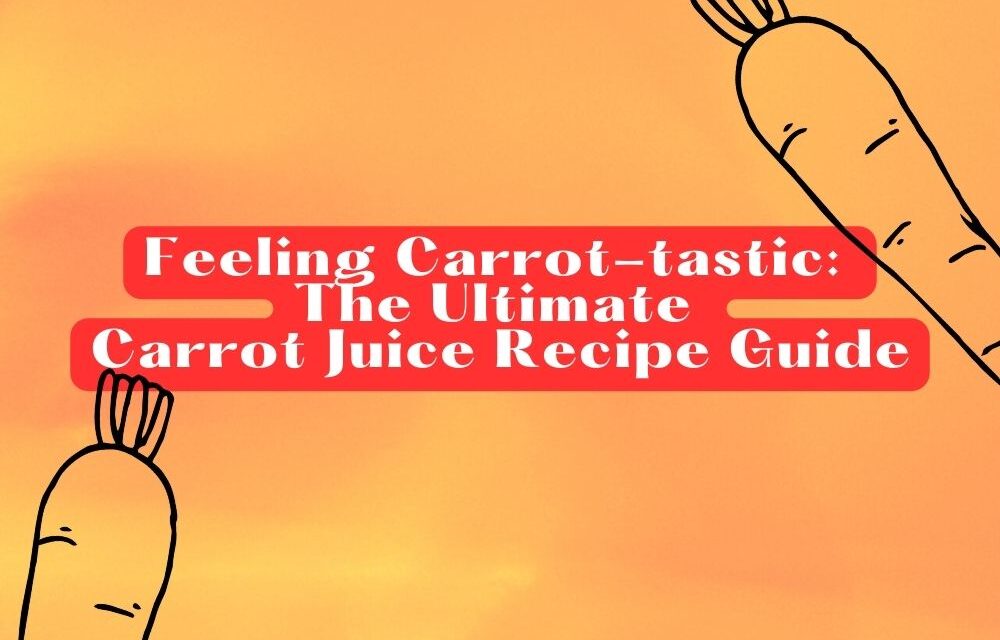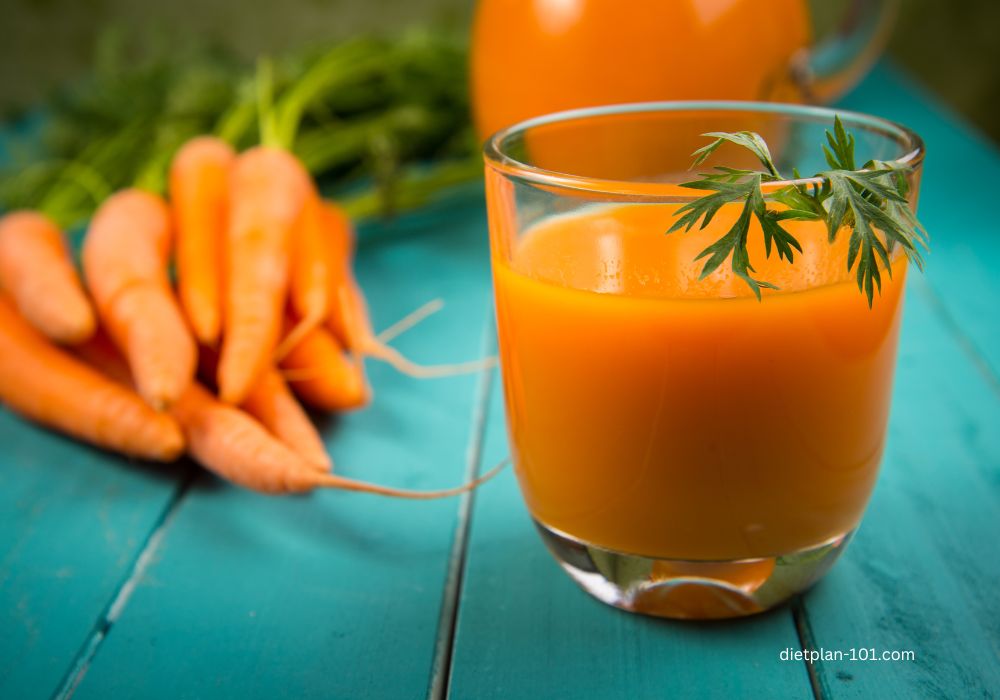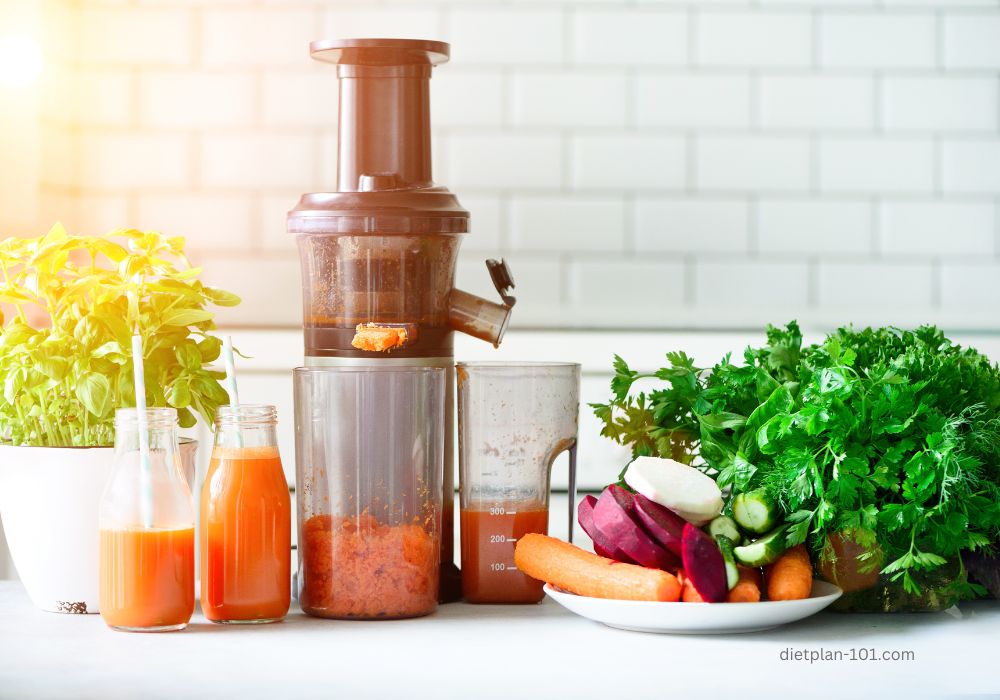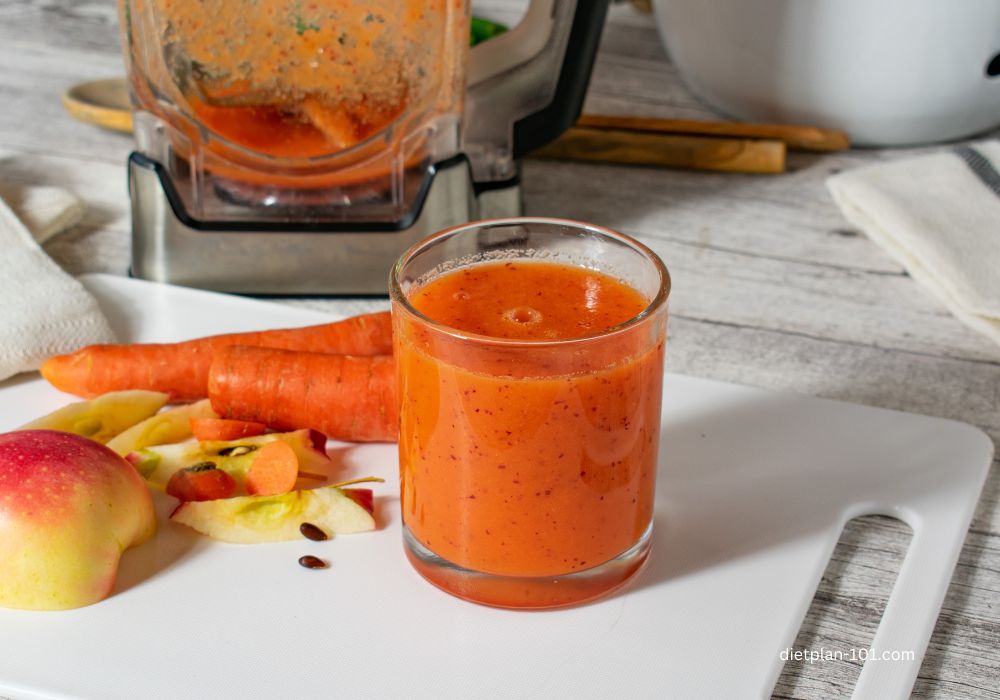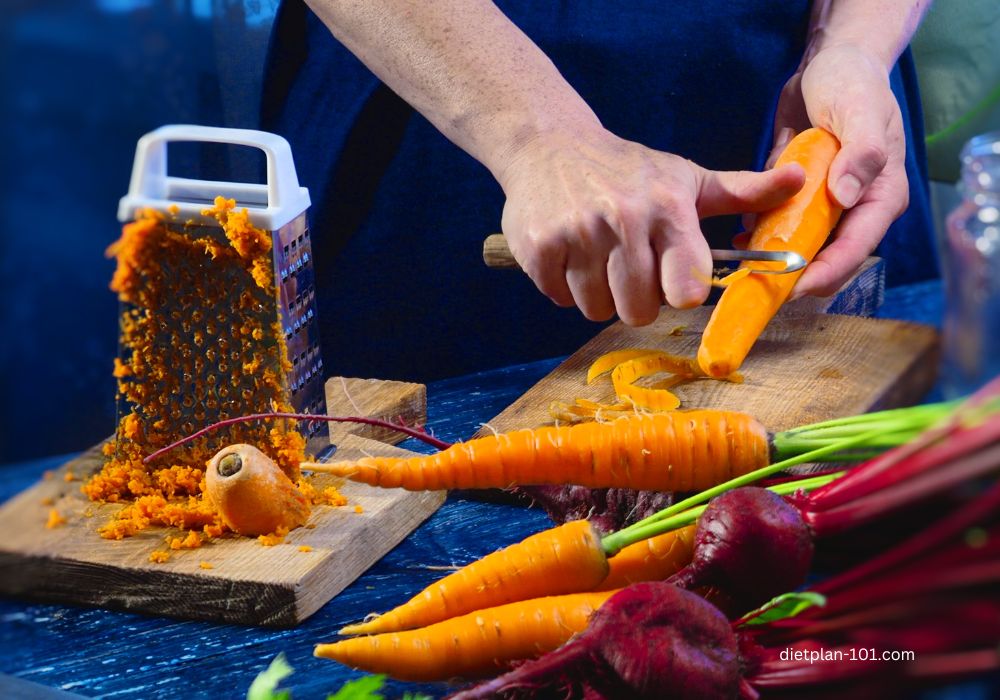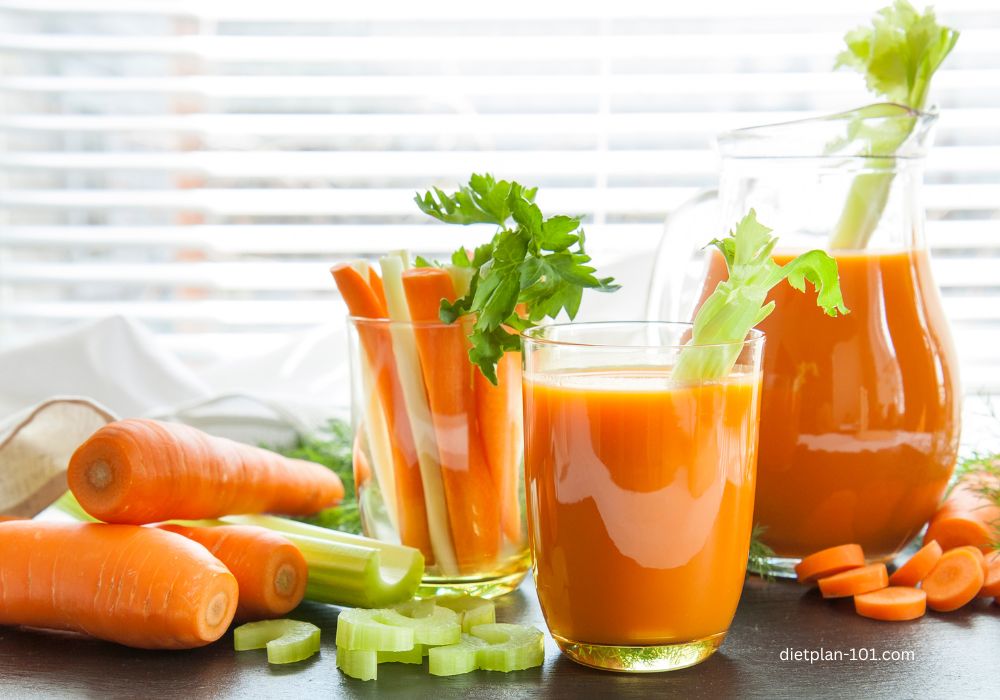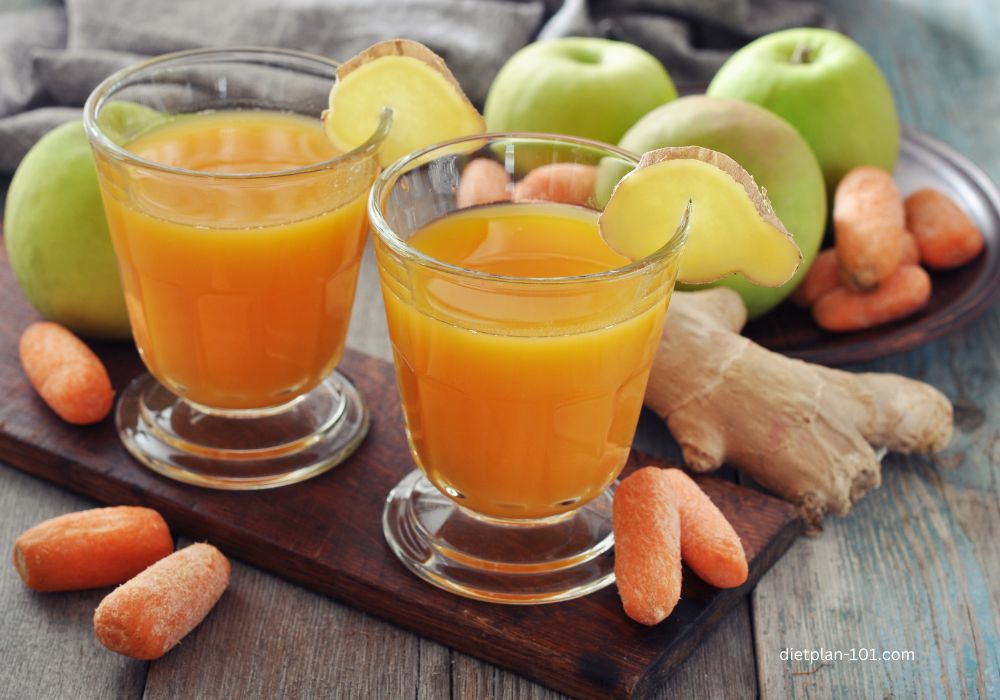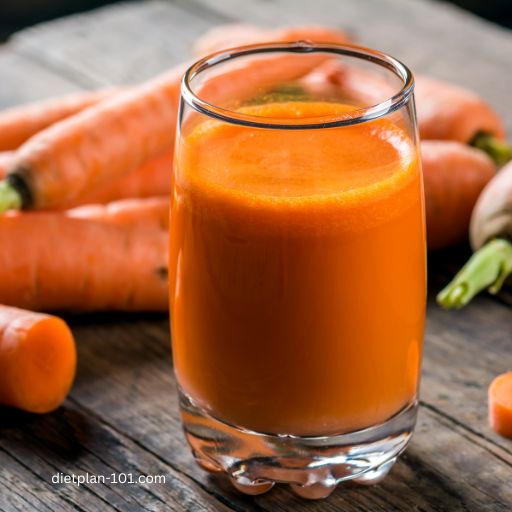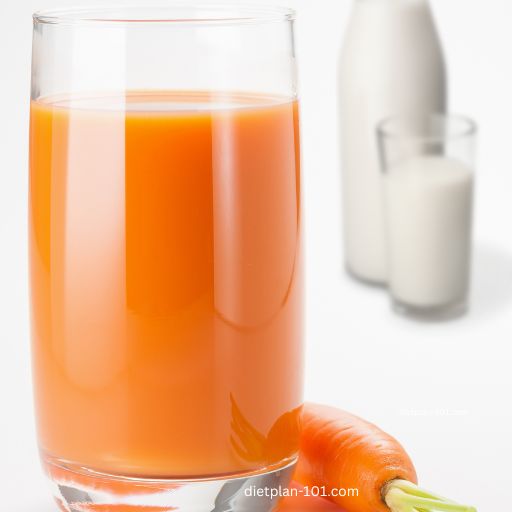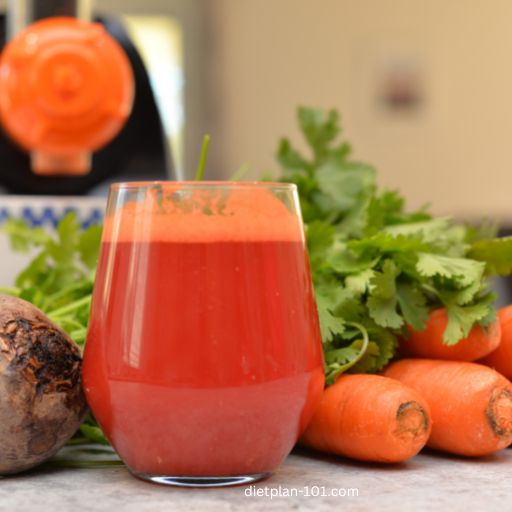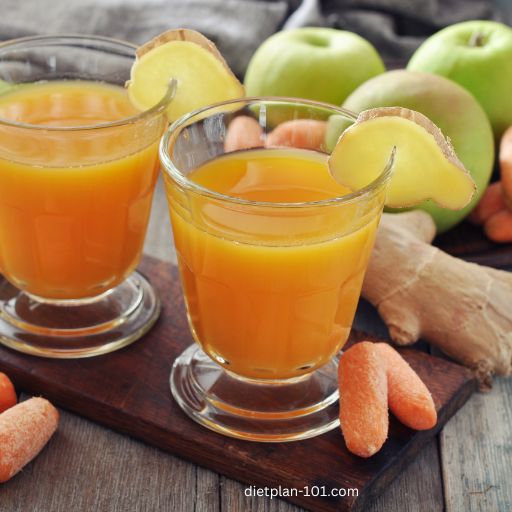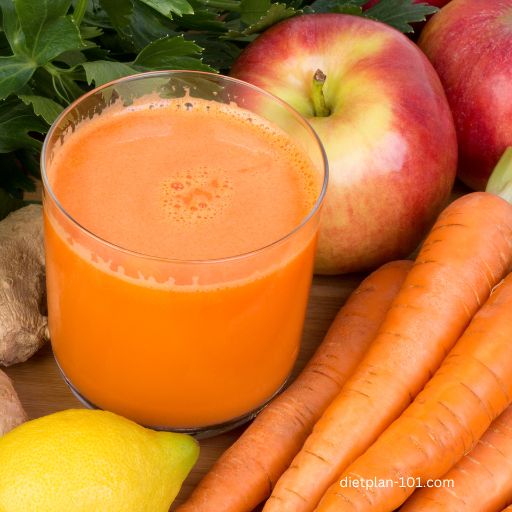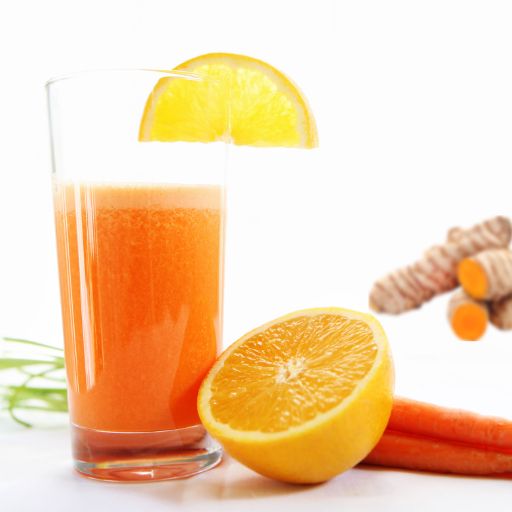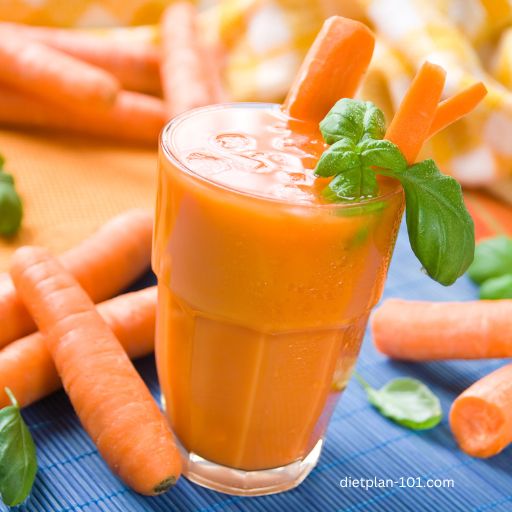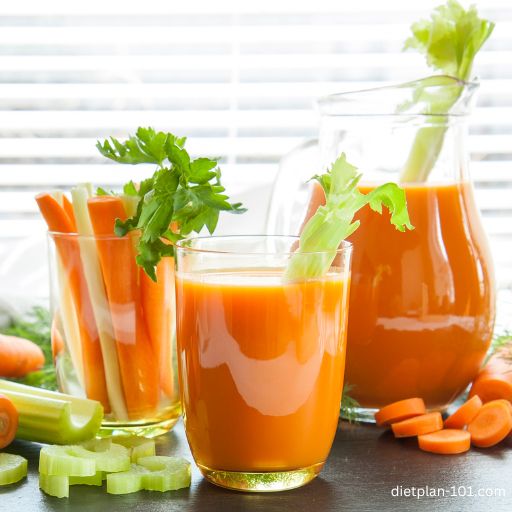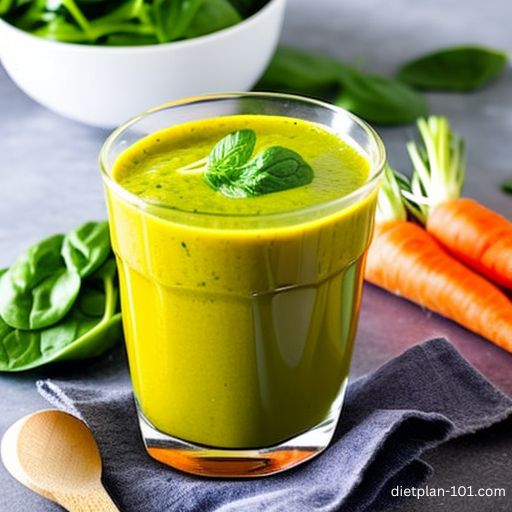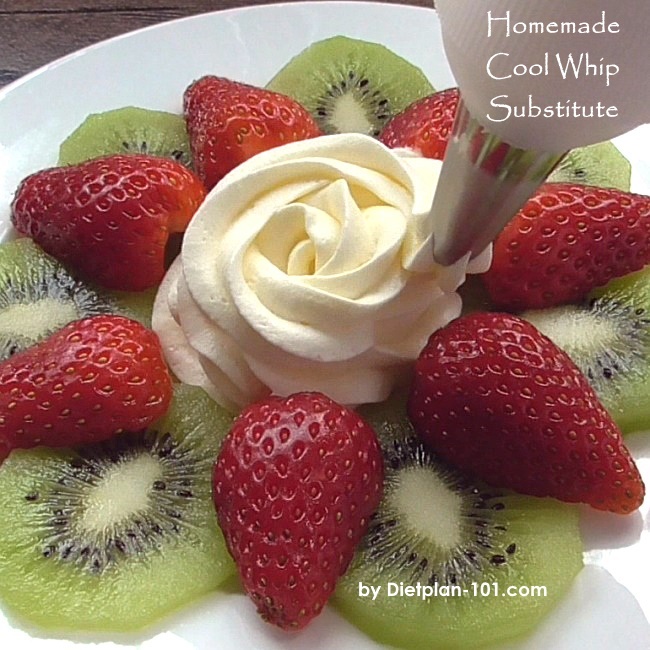Carrot juice has gained popularity in recent years, and for good reason. It’s a delicious and nutritious way to get your daily dose of vitamins and minerals.
In this ultimate guide, we’ll discuss the benefits of drinking carrot juice, how to make it at home using different methods, and tips for making perfect carrot juice.
Benefits of Carrot Juice
Carrots are packed with essential nutrients that can benefit your health in many ways. Here are some of the benefits of drinking carrot juice:
Digestive Benefits
Carrot juice is rich in fiber, which can aid digestion and alleviate constipation. Drinking carrot juice regularly can also help regulate bowel movements and promote a healthy gut.
Immune System Benefits
Carrot juice is loaded with vitamins and antioxidants that can help boost your immune system and protect against illnesses. The high levels of vitamin C in carrot juice can help prevent infections, while the beta-carotene can help enhance the function of white blood cells.
Vision and Skin Health Benefits
Carrots are well-known for their ability to improve vision, and drinking carrot juice can help maintain good eye health. The vitamin A and beta-carotene in carrot juice can also improve skin health, reduce inflammation, and promote collagen production.
How to Make Carrot Juice
Making carrot juice at home is easy and requires minimal equipment. Here are three different methods to make carrot juice:
Using a Juicer
Using a juicer is the easiest and most efficient way to make carrot juice. Simply wash and chop the carrots, feed them into the juicer, and collect the juice in a glass.
Using a Blender
If you don’t have a juicer, you can use a blender to make carrot juice. Blend the chopped carrots with a little water, and then strain the pulp through a cheesecloth or fine-mesh strainer to collect the juice.
Using a Simple Grater
If you don’t have a juicer or blender, you can use a simple grater to make carrot juice. Grate the carrots and then squeeze the juice out using a cheesecloth or fine-mesh strainer.
Carrots were originally purple or white, not orange! It wasn’t until the 16th century that orange carrots were developed in the Netherlands.
Tips and Tricks for Making the Perfect Carrot Juice
Here are some tips and tricks to help you make the perfect carrot juice every time:
Selecting the Best Carrots
Choose fresh, firm carrots that are free from cracks or blemishes. Look for carrots that are bright orange and have a sweet smell.
Adding Flavor and Variety
You can get more flavor and variety in your carrot juice by mixing it with other fruits or vegetables, such as apples, beets or ginger. You can also add spices like cinnamon, turmeric or even nutmeg!
How to Storing Carrot Juice
Fresh carrot juice will keep in the refrigerator for up to three days, but it’s best consumed as soon as possible. Store your juice in an airtight container and place this at the back of your fridge where temperatures are coldest.
The green tops of carrots are edible and can be used in salads or as a garnish.
Frequently Asked Questions
Here are some common questions about drinking carrot juice:
Can I drink carrot juice every day?
Yes, you can drink carrot juice every day as part of a healthy diet. Just be mindful of the sugar content and try to limit your intake to one or two glasses per day.
What are the side effects of drinking carrot juice?
Drinking too much carrot juice can turn your skin yellow, but this is harmless and will go away once you reduce your intake. Carrot juice is also high in sugar, so it’s best to drink only moderate amounts of the stuff.
Can I make carrot juice without a juicer or blender
Yes, you can make carrot juice without a juicer or blender. One way to do this is by using a simple grater to grate the carrots, and then squeezing the juice out using a cheesecloth or fine-mesh strainer.
How many carrots do I need to make a glass of carrot juice?
You’ll need 4-5 medium-sized carrots to make a glass of carrot juice, although this number can vary depending on the size and juicing method you’re using.
Can I freeze carrot juice?
Yes, you can freeze carrot juice for later use. Pour the juice into an airtight container and leave some space at the top for expansion. Freeze for up to 6 months and thaw in the refrigerator before drinking.
Do I need to peel carrots before juicing?
It’s generally recommended to peel carrots before juicing them. While the skin of the carrot is edible and contains nutrients, it can also contain dirt and pesticides that are best avoided. Peeling the carrots also helps to remove any bitterness or tough texture from the skin, resulting in a smoother and more enjoyable juice. However, if you have organic carrots or are comfortable with washing and scrubbing them thoroughly, you may choose to leave the skin on for added fiber and nutrients.
What fruits are good to juice with carrots?
Carrots can be paired with a variety of fruits to create delicious and nutritious juice blends. Some popular fruits to juice with carrots include:
Apples
Oranges
Pineapples
Lemons
Ginger
Berries (such as strawberries, blueberries, or raspberries)
Pears
Mangoes
Grapes
PeachesThese fruits can add natural sweetness, acidity, and flavor to the carrot juice, as well as provide additional vitamins and minerals. Experiment with different combinations to find your favorite flavor profile.
Carrot juice nutrition value
Carrot juice is a nutrient-dense beverage that is low in calories and high in important vitamins and minerals. Here are some of the key nutritional benefits of drinking carrot juice:
- Carrot juice is an excellent source of vitamin A, with one cup providing over 300% of the recommended daily intake. Vitamin A supports healthy vision and immune function plus it promotes skin health!
- Carrot juice is also a good source of vitamin K, which contributes to healthy bone formation and wound healing.
- Carrot juice contains potassium, which is an essential mineral that helps regulate blood pressure and fluid balance in the body.
- Carrots are a good source of antioxidants, including beta-carotene (which protects the body from damage caused by free radicals).
- Carrot juice is a good source of fiber and may help prevent constipation by keeping your digestive system running smoothly.
Our Best carrot juice recipe
To make these juices, simply wash and prepare the ingredients as necessary, then juice them using a juicer. You can also add ice cubes to the juices to make them more refreshing. Enjoy!
| Carrot juice recipes |
|---|
| Jamaican-style carrot juice recipe Ingredients: 6 medium-sized carrots 1 can of coconut milk (13.5 oz) 1/2 cup of sweetened condensed milk 1 tsp of vanilla extract 1/4 tsp of nutmeg 1/4 tsp of cinnamon 1/2 cup of water Ice cubes (optional) |
| Carrot Juice with Milk Recipe Ingredients: 6 medium-sized carrots 1 cup of milk (dairy or non-dairy) 1 tsp of honey (optional) 1/2 tsp of ground cinnamon (optional) |
| Carrot-Beetroot Juice recipe Ingredients: 4 medium-sized carrots 1 medium-sized beetroot 1 inch of ginger |
| Refreshing apple carrot juice recipe Ingredients: 2 medium-sized apples 4 medium-sized carrots 1/2 inch piece of ginger (optional) |
| Classic Carrot Juice Ingredients: 6 medium carrots 1 apple 1 inch of ginger 1 lemon (juiced) |
| Carrot-Orange Juice: Ingredients: 6 medium carrots 2 oranges (peeled) 1/2 inch of turmeric root |
| Spiced Carrot Juice: Ingredients: 6 medium carrots 1/2 inch of ginger 1/4 tsp of cinnamon 1/4 tsp of nutmeg 1/4 tsp of cardamom 1/2 cup of coconut water |
| Carrot-Celery Juice: Ingredients: 6 medium carrots 4 celery stalks 1/2 lemon (juiced) 1/4 cup of parsley |
| Carrot-Green Juice recipe Ingredients: 6 medium carrots 1 cucumber 2 cups of spinach 1/2 lemon (juiced) |
The Bottom Line
There you have it – everything you need to know about making and drinking carrot juice! Whether you’re looking to improve your digestion, boost your immune system, or simply enjoy a delicious and healthy beverage, carrot juice is an excellent choice. So why not give it a try and see how it can benefit your health and wellbeing?
Carrot facts
- Carrots were originally purple or white, not orange! It wasn’t until the 16th century that orange carrots were developed in the Netherlands.
- Carrots were used as a natural sweetener before sugar was widely available.
- Carrots can be used to make a variety of products, including juice, cakes, and even beer!
- The green tops of carrots are edible and can be used in salads or as a garnish.
- Carrots are one of the most widely cultivated vegetables in the world, with China being the largest producer.
- In the Middle Ages, carrots were used as a remedy for everything from snake bites to insanity.
- Carrots were one of the first vegetables to be canned commercially in the United States.
- Carrot seeds are incredibly small – a single ounce can contain up to 75,000 seeds!
- During World War II, the British government encouraged citizens to grow carrots as a way to supplement diets and up for food shortages.
- Carrots are a low-calorie vegetable, with just 25 calories per 100 grams.

